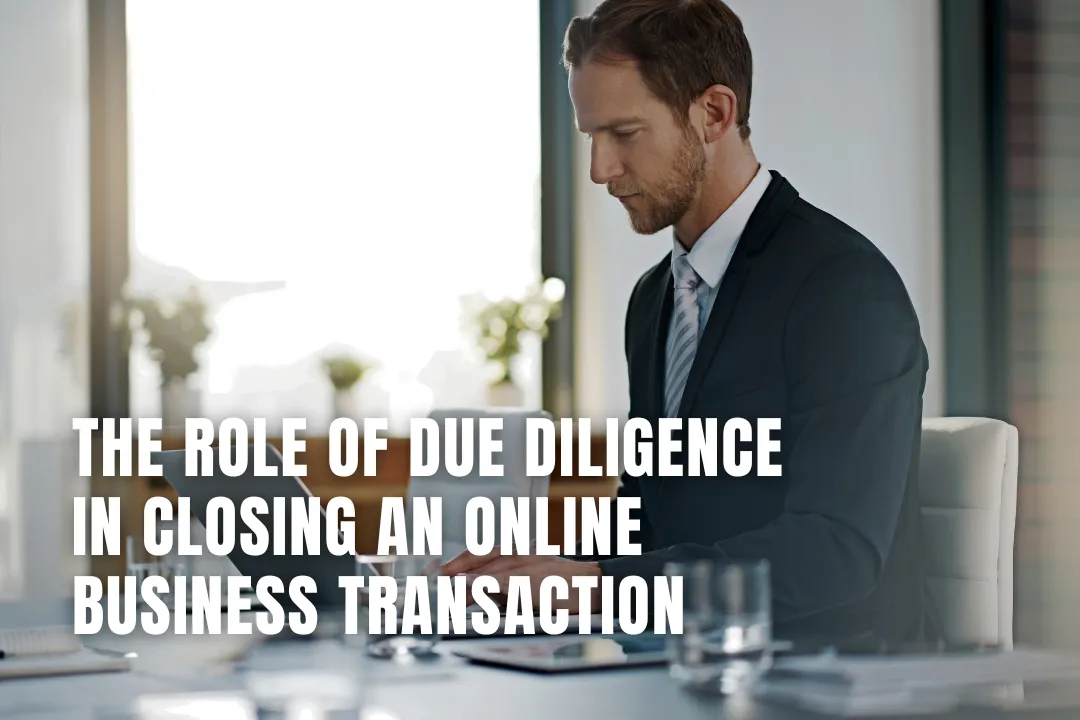
When buying or selling an online business, the process doesn't end with a handshake. Behind every smooth transition is a critical and often overlooked step, due diligence. Whether you're purchasing an e-commerce store, a SaaS platform, or a content-based website, due diligence is essential for making informed decisions and ensuring a successful closing.
Due diligence refers to the comprehensive review and analysis a buyer undertakes before finalizing a business purchase. It's the investigative phase that allows the buyer to verify all claims made by the seller about the business. This includes financials, traffic analytics, legal considerations, operational systems, customer databases, and more.
For example, if a seller claims their affiliate website earns $5,000 per month, due diligence would involve checking Google Analytics, bank statements, affiliate dashboards, and perhaps even supplier agreements. The goal is simple: trust, but verify.
Online businesses often come with digital assets rather than physical inventory. That makes transparency even more critical. The buyer is essentially investing in the credibility of data, traffic reports, monetization methods, SEO performance, customer lists, and operational efficiency.
Here's why due diligence plays a vital role:
A common question that comes up during a transaction is: does due diligence go towards closing? The answer is yes, absolutely. Due diligence isn't just a background step; it directly influences the ability to close the deal.
If the buyer uncovers issues during this phase say, inflated revenue numbers or misrepresented traffic sources, it can delay or completely derail the transaction. On the other hand, if everything checks out, due diligence becomes the green light to move forward. In this sense, due diligence is not separate from closing; it is part of the closing process.
In most transactions, a Letter of Intent (LOI) is signed before due diligence begins. The LOI outlines the general terms but is non-binding. The binding part comes after due diligence, once the buyer is confident in the purchase and agrees to proceed to the closing stage, typically marked by signing the Asset Purchase Agreement (APA) and transferring funds.
Here are the main areas buyers usually investigate:
Each of these areas helps the buyer assess the value and potential risks of the business. Skipping even one of them could lead to unexpected problems after closing.
In the digital world, closing a business transaction isn’t just about transferring a domain name. It’s about transferring ownership with full confidence in the asset’s value. Due diligence is the bridge that connects intention with action, and it plays a defining role in closing any online business transaction. So, does due diligence go towards closing? Without question. It's not just a preliminary step, it's a necessary path that leads directly to a successful and secure deal.